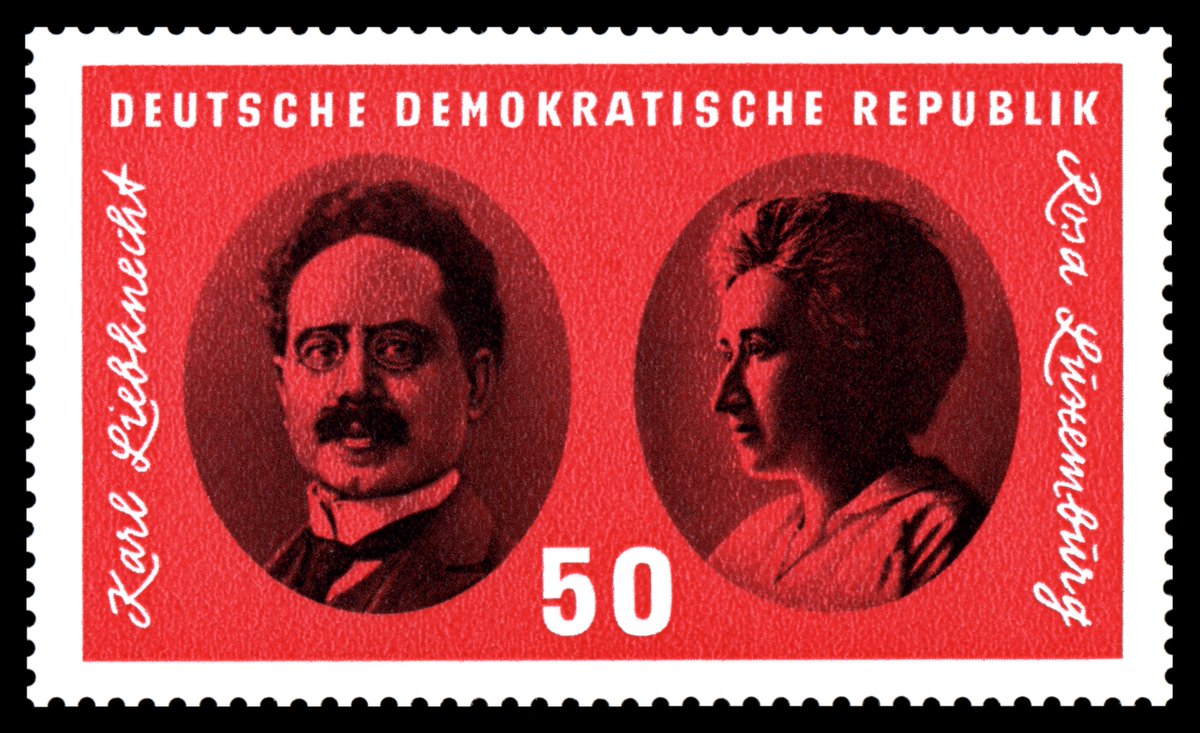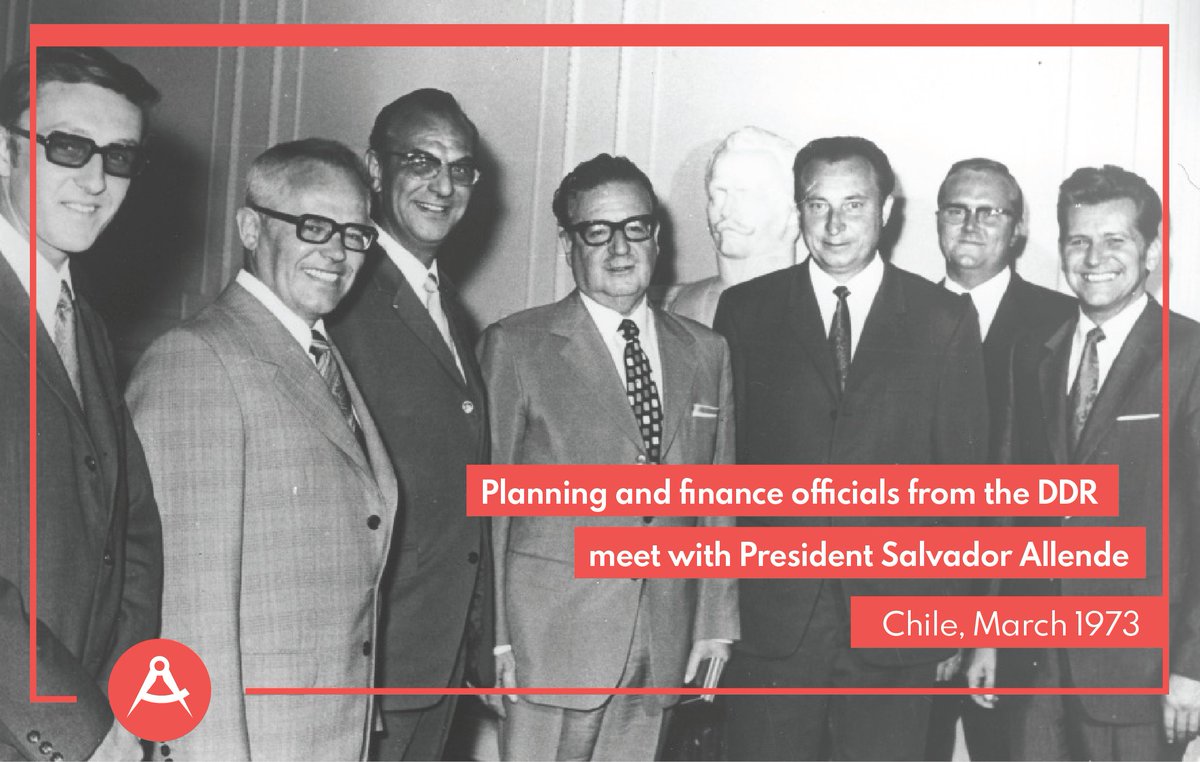#OTD in 1919, after suppressing the Spartacist Uprising, proto-fascist forces killed communist leaders Rosa #Luxemburg & Karl #Liebknecht on the orders of the Social Democrat-led government.
Their deaths must be understood in historical context of the German workers' movement:
1/
Their deaths must be understood in historical context of the German workers' movement:
1/

In January 1912, the Sozialdemokratische Partei Deutschland (SPD) secured a historic electoral victory – with over a third of the votes, it became the first workers' party to dominate a European parliament. Deep divisions had, however, already been developing within the party. 2/
Driven by the emergence of monopoly capitalism (or imperialism) in the late 19th & early 20th century, a reformist tendency rejecting proletarian revolution spread through the SPD leadership. As WWI erupted in 1914, this tendency pushed through a party policy of "Burgfrieden". 3/ 

"Burgfriedenspolitik" (politics of peace within the castle) was an attempted cross-class truce in the name of patriotism: SPD parliamentarians were to vote for credits to fund the war, trade unions were to refrain from strikes, and the government was not to be criticised. 4/ 

The only parliamentarian to openly resist this line was Karl Liebknecht. Those within the SPD who still upheld proletarian revolution and rejected the war formed the 'Spartacus Group' in August 1914. Its leading figures were #Liebknecht, Rosa #Luxemburg and Clara #Zetkin. 5/ 



Unwilling to tolerate criticism of the government and its war, the SPD subsequently expelled members of the Spartacus Group and abandoned its leaders who were then imprisoned.
Yet, as the war dragged on and millions were killed, unrest began to spread throughout Germany. 6/
Yet, as the war dragged on and millions were killed, unrest began to spread throughout Germany. 6/
At a clandestine conference in 1918, the Spartacus League drafted its "October Programme", calling for an immediate end to the war, the overthrow of German imperialism, and the establishment of a socialist republic "that is in solidarity with the Russian Soviet Republic". 7/ 

The November Revolution broke out shortly thereafter, bringing the Empire and the war to an end.
The SPD, led by Friedrich Ebert, moved to prevent a social revolution by aligning with the bourgeois parties and old elites of the Empire to establish a parliamentary republic. 8/
The SPD, led by Friedrich Ebert, moved to prevent a social revolution by aligning with the bourgeois parties and old elites of the Empire to establish a parliamentary republic. 8/

Meanwhile, the Spartacus League, renamed the Communist Party of Germany (KPD) in December 1918, called for all power to the workers’ and soldiers’ councils that had spontaneously emerged in the upheaval as they had in Russia in 1917. Liebknecht proclaimed a socialist republic. 9/ 

The SPD called on their new partners to quell the KPD-led Spartacus Uprising that broke out on 5 January. With the superior firepower of the proto-fascist Freikorps, the uprising was suppressed. Liebknecht and Luxemburg were then captured, beaten and shot by the Freikorps. 10/ 

Attempts to build socialist power were more successful in Bavaria, where various groups held out against the SPD-government for several months in 1919.
Yet they too were ultimately suppressed at the hands of the Freikorps. The proletarian revolution in Germany had failed. 11/
Yet they too were ultimately suppressed at the hands of the Freikorps. The proletarian revolution in Germany had failed. 11/

Despite mass executions of communists in the months that followed, the KPD grew in strength during the Weimar Republic (1918-33). It continued to uphold the traditions of internationalism & proletarian revolution, fighting for workers’ rights & resisting the rise of fascism. 12/ 

Yet the divided nature of the working class – originating in the reformist tendency of pre-war social democracy – lent an advantage to the gathering fascist forces.
Financed by monopoly capital, the Nazi party took power and the German working class movement was decimated. 13/
Financed by monopoly capital, the Nazi party took power and the German working class movement was decimated. 13/
After the final defeat of German fascism at the hands of the Red Army in 1945, the KPD became a leading party in the Soviet Occupied Zone. To overcome the division that had facilitated the rise of fascism, the KPD & SPD merged in 1946 to form the Socialist Unity Party (SED). 14/ 

In the Federal Republic of Germany (West Germany), the KPD was banned in 1956 and communists were expelled from their occupations throughout the decades that followed. 15/ 

In the #DDR, #Liebknecht and #Luxemburg were upheld as forebearers of the first Workers' and Peasants' State in Germany. Since 1946, annual commemorations were held at the Memorial of the Socialists in Berlin and continue to be organised by socialist groups today.
16/16
16/16

• • •
Missing some Tweet in this thread? You can try to
force a refresh























